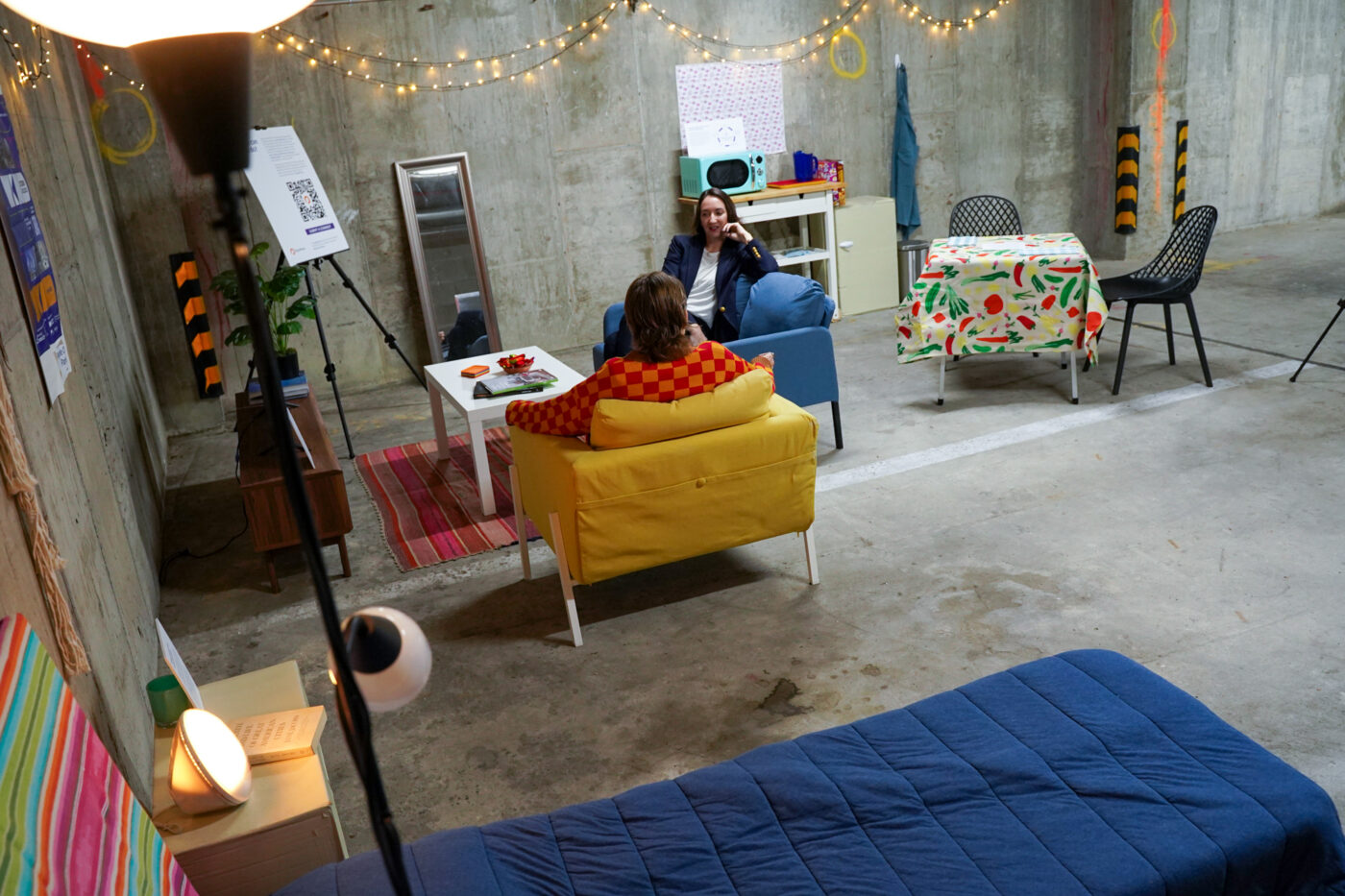
— This story is from my recent trip to New York City. See more coverage here.
“We’ve taken over two parking spaces and built a fully-furnished and usable studio apartment.”
– Sara Lind, Open Plans
You’ve read a lot about the connection between cities, auto parking, and housing over the years here on BikePortland. In fact, we launched our Real Estate Beat column 10 years ago with a tenet of, “housing that doesn’t require on-site parking is far more space-efficient.” Since then, Oregon has approved the largest rollback of parking mandates (rules that require developers to build car parking spaces, even when it’s not needed) in modern US history.
“House people, not cars,” was the mantra that seemed to sum it up best.
But even with all the amazing local activism to fix these outdated and harmful parking policies, something that happened in an underground parking garage in Brooklyn, New York on Saturday made the case in most compelling and visceral way I’d ever seen.
“We are in a parking garage of a residential building in Williamsburg that is one block from two train lines, but was required to build parking,” said Sara Lind, a co-executive director of Open Plans (a nonprofit and sister organization to Streetsblog). “So we’ve taken over two of those parking spaces and built a fully-furnished and usable studio apartment inside.”
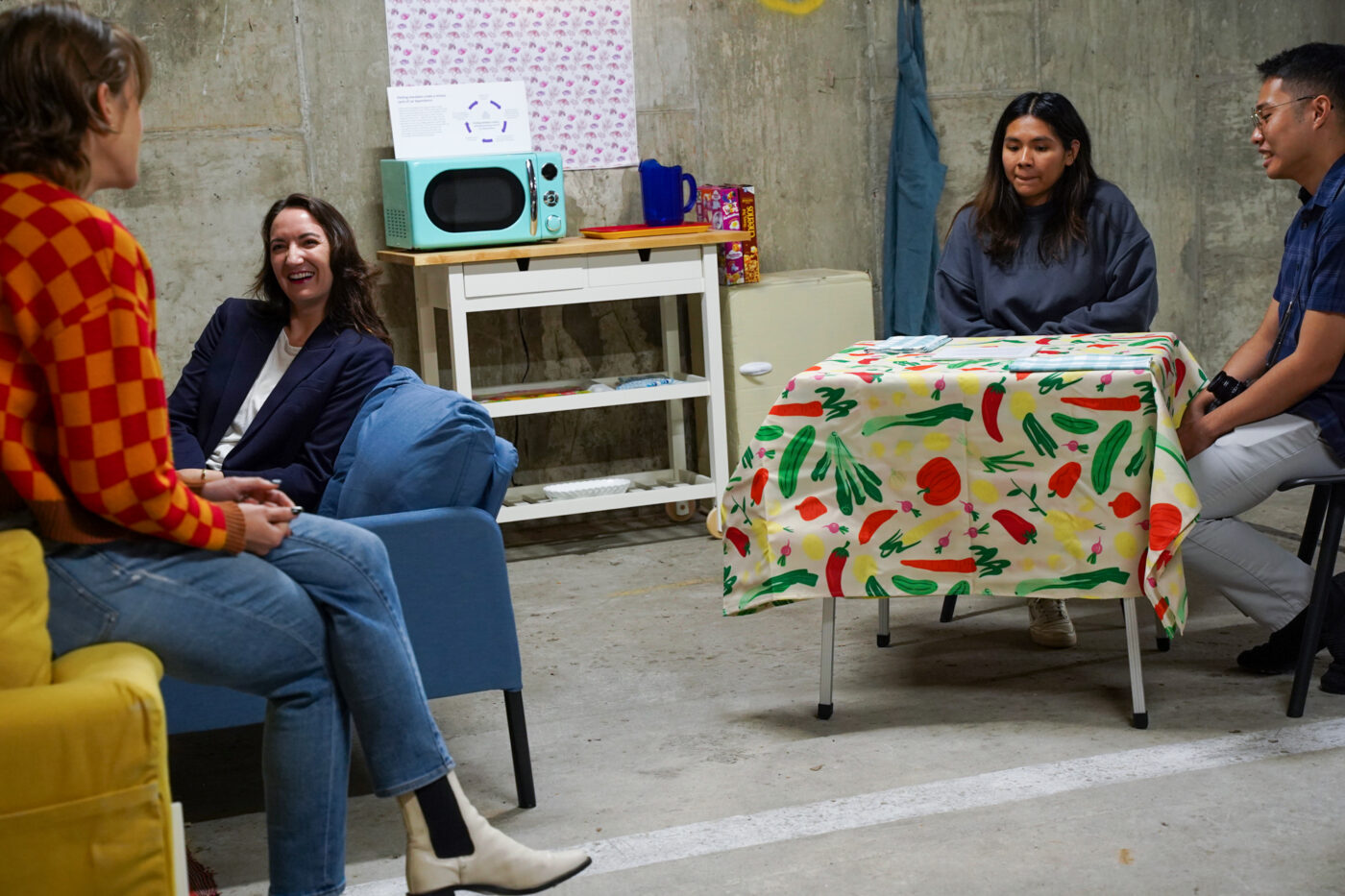





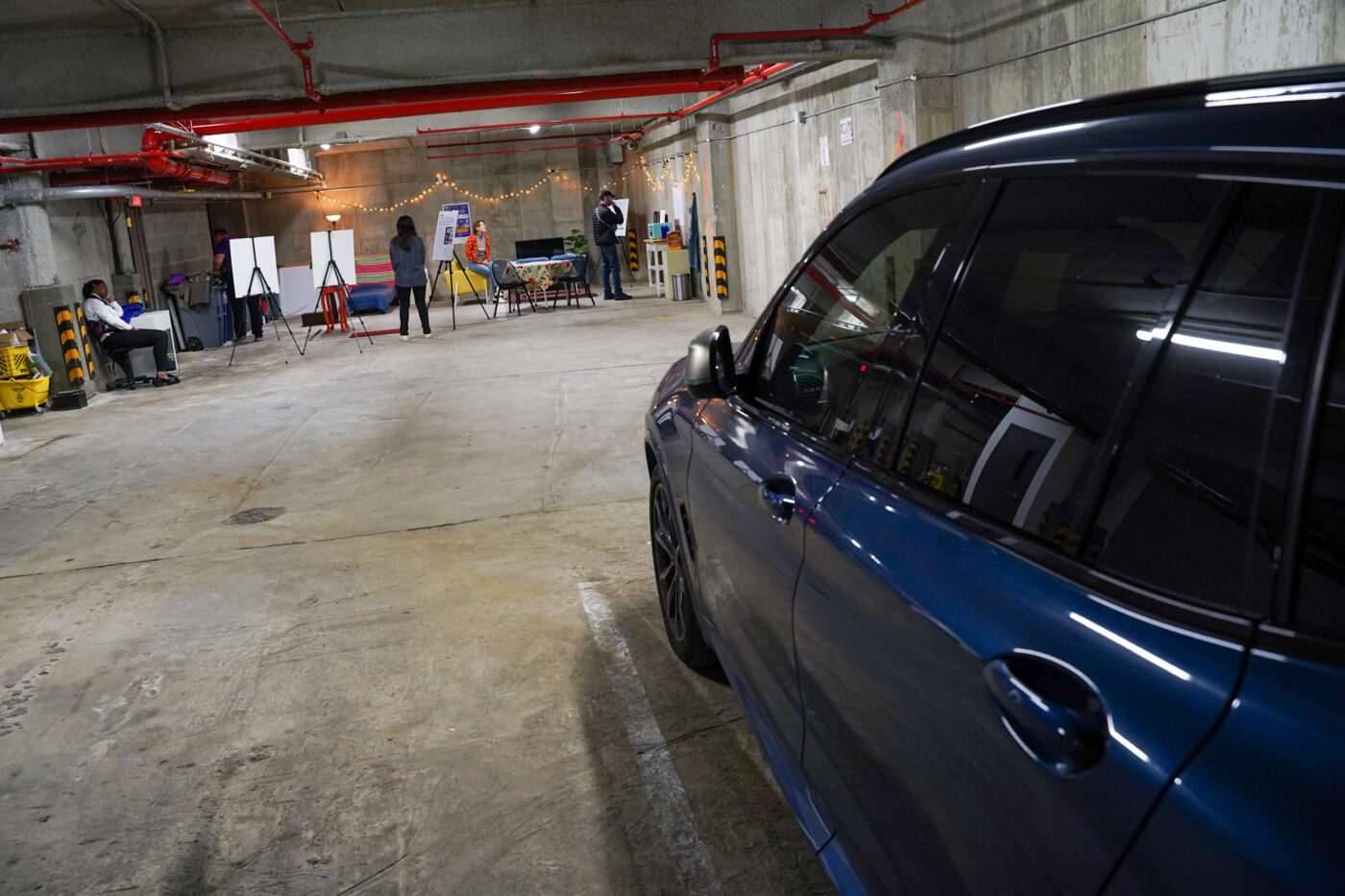
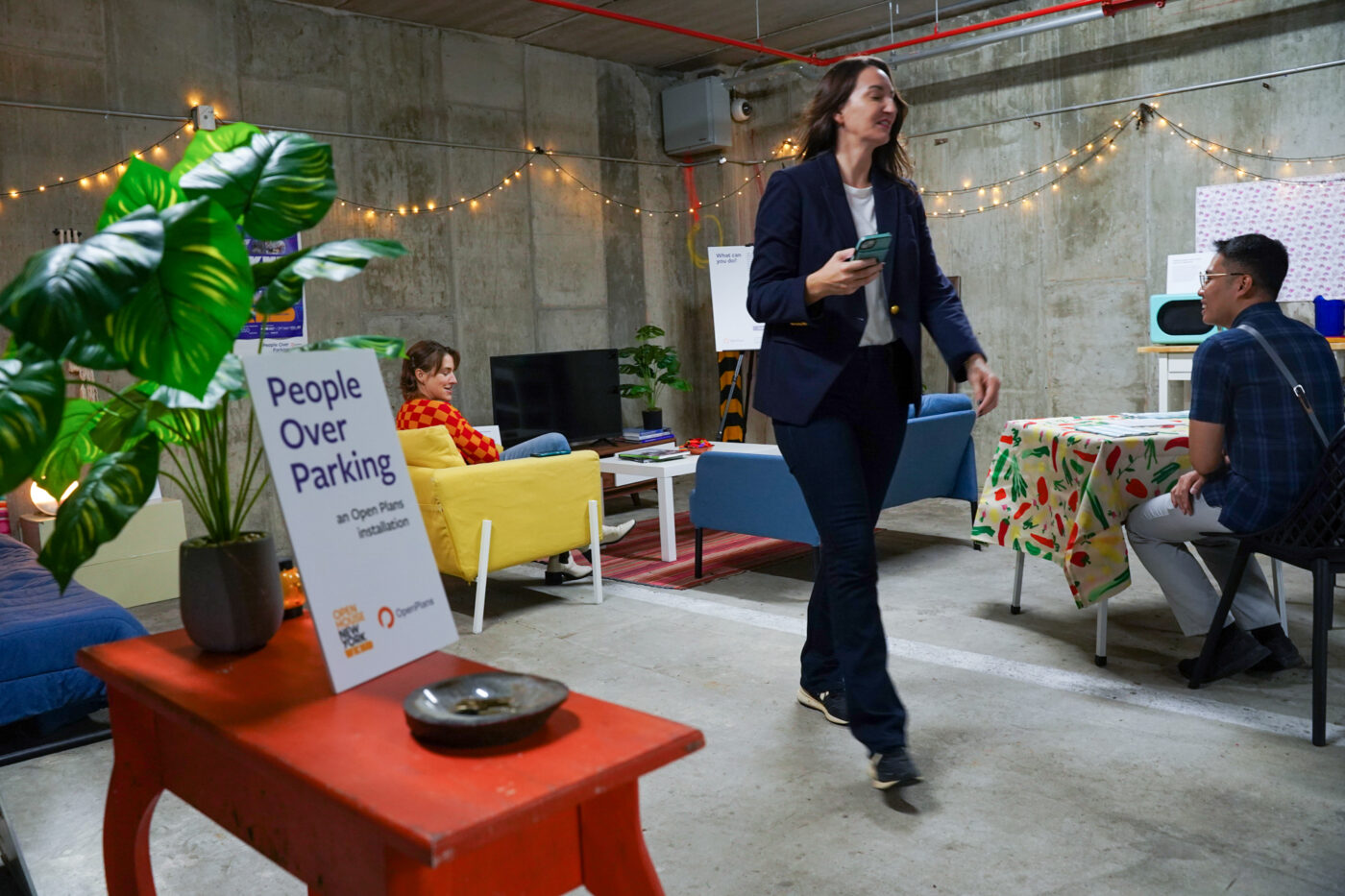
Lind and a few other Open Plans volunteers and staffers milled around a couch, TV, dining table, microwave — and there was even a box of Cheerios and a copy of Jane Jacobs’ seminal book The Death and Life of Great American Cities on the nightstand beside the bed. A BMW the size of the quaint living room sat parked on the other side of the garage.
Although the project was conceived to demonstrate the trade-offs between housing cars and people that many cities face, and no one was expected to live in the cold, concrete garage, Lind added, “Frankly, I think it’s a pretty nice sized space. You know, college me would have loved it.”
The installation was part of Open Plans’ campaign to lift parking mandates, which they believe are outdated, costly policies that force developers to hand over valuable space to storing private cars. In addition to the furnishings, a series of signs scattered around the room explained how parking mandates perpetuate a cycle of car dependence, make housing less affordable, suppress housing development, and so on. There’s a public comment period open now where New Yorkers can encourage the Mayor’s office to follow through with what city staff have already recommended. That is, a complete elimination of parking mandates citywide.
“If they change the zoning code, this parking garage wouldn’t have been required to be built,” said Open Plans Director of Communications Chelsea Dowell.
Open Plans doesn’t work on housing policy as a matter of course, but Dowell says they focus on things that affect the way streets, sidewalks, and public space feel. “And encouraging car ownership through things like parking mandates does impact the way that your streets and your public space feels.”
In a more practical sense, the installation helped drive pocketbook issues home in a fun new way. In a Streetfilms video from the event, one of the interviewees said, “I live in Midtown and I pay $500 for a parking space when my rent is way more than that and for the same same size as two parking spaces, so it’s pretty cool to see an apartment my size can be what I pay for my car.”
With the Portland Bureau of Transportation closing a major downtown parking garage indefinitely back in August, this kind of creative activism to show what’s possible in the future is needed now more than ever.



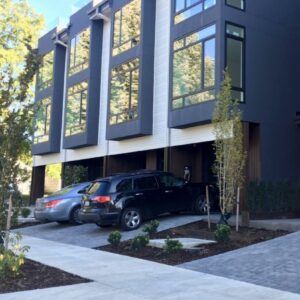


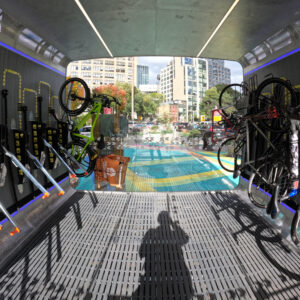
Thanks for reading.
BikePortland has served this community with independent community journalism since 2005. We rely on subscriptions from readers like you to survive. Your financial support is vital in keeping this valuable resource alive and well.
Please subscribe today to strengthen and expand our work.
Getting rid of parking mandates is the absolute least we can do but this tiny incrementalism in the midst of a raging climate crisis is not something I celebrate. And in the context of European cities obliterating parking spaces by the tens of thousands and restricting people from driving fossil-fuel-burning cars in urban centers, it’s hard not to see this as just another way to kick the can down the road.
It seems like PBOT, who has recently shut down a parking garage or two, could learn a lesson from this: rent out that space as housing. Can you say “renewable revenue stream, baby!”
I wonder what it would take to add some plumbing and electrical…?
Great idea!….Great minds think alike:
…I did a similar demo in Vancouver back in 2002:
https://www.slideshare.net/ToddBoulanger/2016-presentation-housing-for-cars-or-people-spatial-demonstration-2-59109448?from_search=0
My daughter has lived in NYC for the past 8 years. She paid $2400 a month for an alcove studio in Hell’s Kitchen for a few years. She does not drive, and takes the subway to work or walks. The area is chalk full of on street parking spaces that are FREE! No permits, no meters. I love this installation, it demonstrates exactly why each parking space in her old neighborhood should cost $1200 a month based on the rent for her studio and the fact it was at most the area of two spaces. In her new neighborhood too, she is now in a one bedroom in Williamsburg and the cost per parking space related to her square feet of living space should be about the same. For an interesting and thorough look at this infuriating problem the recent book Paved Paradise: How Parking Explains the World by Henry Graber is excellent.
This silly title is a great example of the first-world privilege of the urban elite.
There is a certain smugness to it.
Did a multi-family developer sponsor this post?